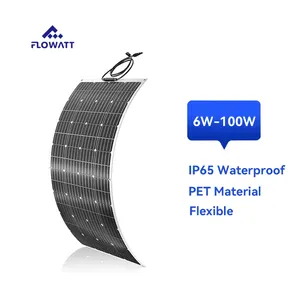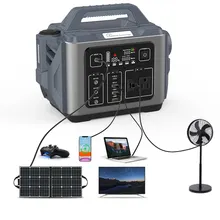What are Solar Panels
Solar panels, also known as photovoltaic (PV) panels, are devices designed to capture and convert sunlight into electricity. They are a cornerstone of renewable energy solutions, offering a clean and sustainable alternative to traditional fossil fuels. Solar panels are composed of numerous solar cells made from semiconductor materials, such as silicon, which generate electrical current when exposed to sunlight through the photovoltaic effect.
The principle behind solar panels is simple yet profoundly impactful. When photons from sunlight strike the solar cells, they dislodge electrons from their atoms, creating a flow of electricity. This process is entirely emission-free and does not deplete any natural resources. As such, solar panels are utilized by various entities ranging from residential homeowners seeking to reduce their energy bills and carbon footprint to commercial enterprises looking to invest in large-scale renewable energy projects. Solar panels are versatile and can be installed on rooftops, integrated into building designs, or deployed in vast solar farms that feed electricity into the power grid.
The operation of solar panels is governed by the efficiency at which they convert sunlight into electrical energy. Factors influencing efficiency include the type of semiconductor material used, the configuration of the solar cells, climatic conditions, and the angle of installation relative to the sun. Overall, solar panels represent a significant step towards a more sustainable future and demonstrate how modern technology can harness natural processes for human benefit.
Types of Solar Panels
In the realm of solar technology, different types of solar panels cater to specific needs and applications. The most common types include monocrystalline silicon and polycrystalline silicon solar panels.
Monocrystalline Silicon Solar Panels: These panels are known for their high efficiency and sleek appearance. Made from single-crystal silicon, they typically have a uniform black hue and are valued for their performance in low-light conditions. Monocrystalline panels are often used in residential and commercial settings where space is at a premium but optimal power output is desired.
Polycrystalline Silicon Solar Panels: Recognizable by their blue speckled look, polycrystalline panels are constructed from multiple silicon crystals melted together. They offer a balance between cost and efficiency and are widely employed in large-scale installations such as solar farms or community projects where ample space allows for more extensive arrays.
These variations enable businesses and individuals to select solar panel types that align with their specific requirements for power generation, whether for residential use or larger commercial endeavors.
How to choose Solar Panels
Choosing the right solar panels for your business involves understanding the nuances between different types and recognizing which features align with your project's goals. Here's what businesses should consider when selecting solar panels:
Efficiency and Output: Evaluate the efficiency ratings of monocrystalline or polycrystalline options to ensure you get the most power per square foot, especially if installation space is limited.
Durability and Quality: Opt for products with robust frames—like aluminum alloy or galvanized steel—and features such as water resistance to ensure long-term reliability in various environmental conditions.
Customization Requirements: Consider whether OEM customization is necessary for your application, as this can greatly influence the choice of supplier.
Sustainability Goals: Align your panel selection with eco-friendly initiatives by choosing options that promote environmental stewardship.
By carefully considering these factors, businesses can make well-informed decisions that cater to their specific needs while contributing positively to sustainability efforts.
Best Solar Panels on Alibaba.com
For businesses seeking dependable solar panel solutions, Alibaba.com stands out as a comprehensive marketplace that connects buyers with a diverse array of suppliers offering PV products tailored for a wide range of applications. Whether your venture requires high-efficiency monocrystalline modules for a residential setup or expansive polycrystalline arrays for commercial projects, you'll find suitable options that meet rigorous quality standards without compromising on performance.
Alibaba.com's platform facilitates a streamlined procurement process through features like filtering options that help buyers navigate through an extensive selection based on material type, application purpose, color preferences, and more. Moreover, with services like Trade Assurance, businesses can rest assured that their transactions are protected until delivery is fulfilled—providing peace of mind in international trade dealings.
Leveraging its global reach and expansive network of suppliers, Alibaba.com embodies an environment where small-to-medium-sized businesses can thrive by accessing products that are both competitive in price and uncompromising in quality. It's more than just a marketplace; it's an opportunity for businesses worldwide to propel forward into the renewable energy landscape with confidence.
Common FAQs for Solar Panels
What is the average lifespan of solar panels?
Solar panels typically have a lifespan ranging from 25 to 30 years, during which they can maintain a significant portion of their efficiency.
Can solar panels be installed on any type of roof?
Most types of roofing materials can support solar panel installation, but it is essential to consider the roof's condition, angle, and load-bearing capacity.
What maintenance is required for solar panels?
Solar panels require minimal maintenance, usually involving regular cleaning to remove debris and ensure maximum light absorption.
How does weather affect solar panel performance?
While solar panels are designed to withstand various weather conditions, their performance can be impacted by extreme weather such as heavy snowfall or hailstorms.
Are solar panels effective in cloudy climates?
Yes, solar panels can still produce electricity in cloudy climates, although the energy output may be reduced compared to direct sunlight conditions.
What is the difference between on-grid and off-grid solar panel systems?
On-grid systems are connected to the public electricity grid and can feed excess power back into it, while off-grid systems are standalone and often paired with storage solutions like batteries.
Can businesses benefit from solar energy if they rent their premises?
Yes, businesses that rent their premises can invest in portable or leased solar panel systems, provided they have the consent of the property owner.
How do you determine the number of solar panels needed for a commercial project?
The number of solar panels required for a commercial project depends on the energy consumption needs, available space for installation, and the efficiency of the chosen panels.
What are bifacial solar panels, and how do they differ from traditional ones?
Bifacial solar panels can capture sunlight from both their front and back sides, potentially increasing energy production compared to traditional single-sided panels.
Is it possible to upgrade an existing solar panel system?
Yes, existing solar panel systems can often be upgraded with additional panels or newer technology to increase capacity or efficiency.
What type of inverter should be used with solar panels?
The choice of inverter depends on the system size and type; string inverters are common for larger installations, while microinverters are suitable for individual panel optimization.
How does shading affect solar panel performance?
Shading on any part of a solar panel can significantly reduce its power output; therefore, it's important to install panels in areas with minimal shading throughout the day.
What certifications should businesses look for when choosing solar panels?
Businesses should look for certifications like TUV, CE, or UL which indicate that the solar panels meet industry standards for safety and performance.
Can businesses receive tax benefits or incentives for installing solar panels?
Many regions offer tax benefits or incentives to businesses that install solar panels; it is advisable to research local programs that may reduce the initial investment cost.



































 浙公网安备 33010002000092号
浙公网安备 33010002000092号 浙B2-20120091-4
浙B2-20120091-4